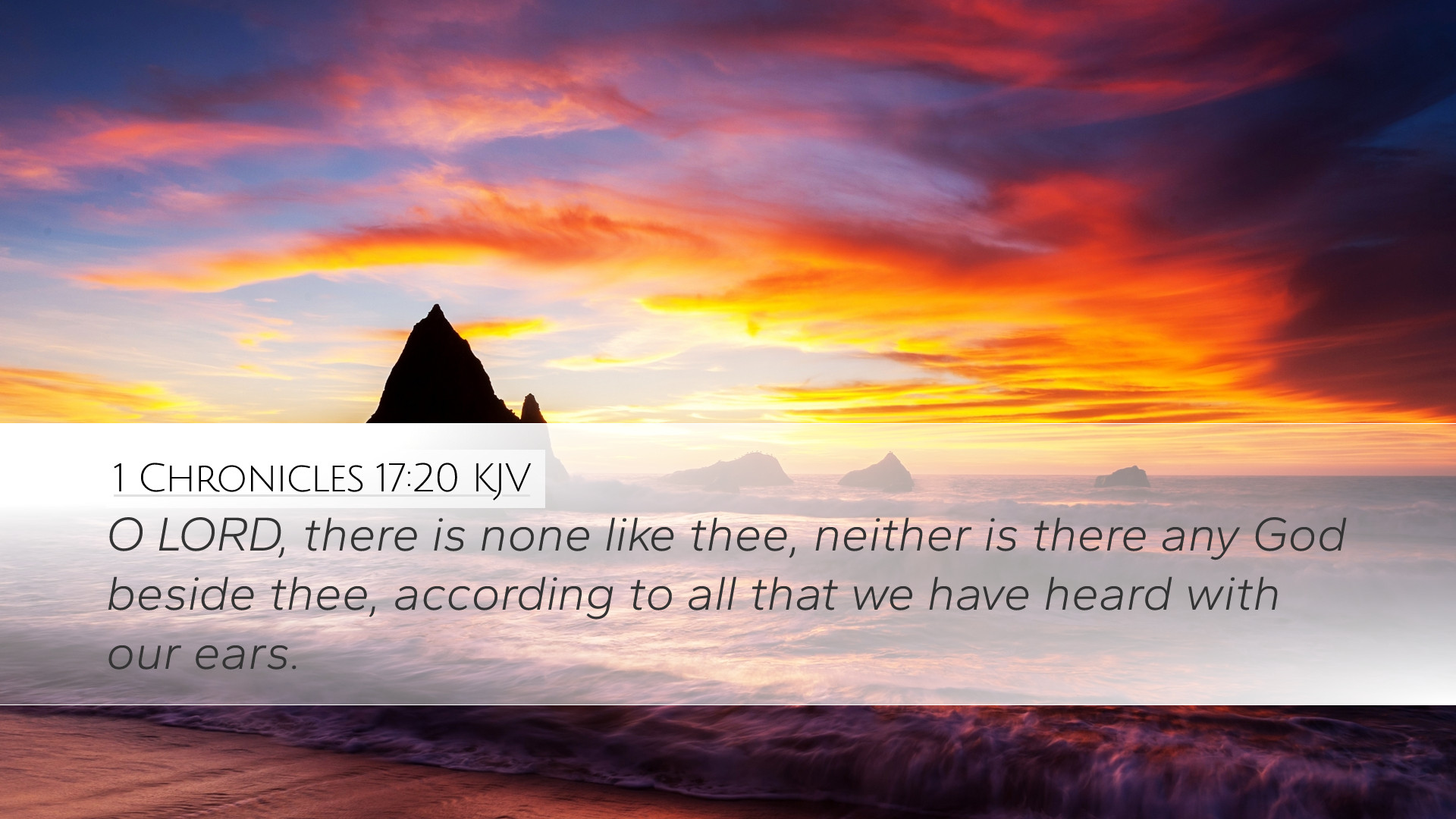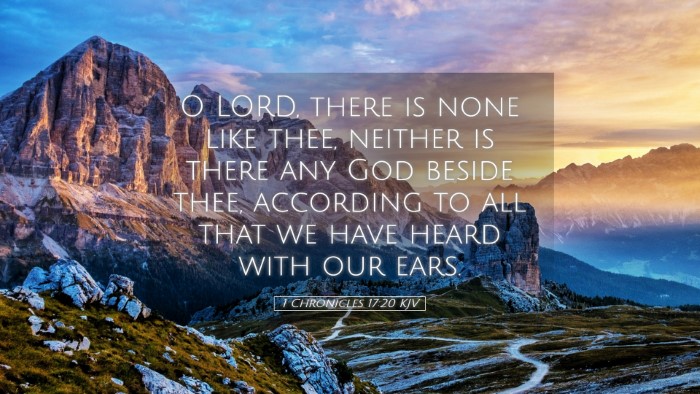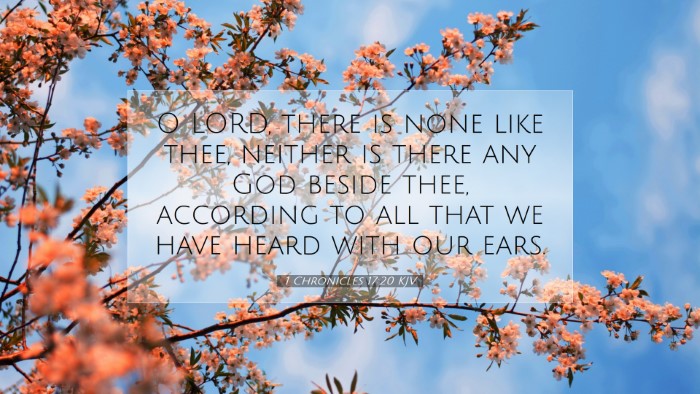Commentary on 1 Chronicles 17:20
Verse Text: "O Lord, there is none like you, nor is there any God besides you, according to all that we have heard with our ears."
Introduction
The verse from 1 Chronicles 17:20 presents a profound acknowledgment of God's uniqueness and sovereignty. This commentary seeks to explore the theological and practical implications of David's declaration to God, integrating insights from esteemed public domain commentators such as Matthew Henry, Albert Barnes, and Adam Clarke.
Theological Significance
This verse arises from David's prayer and reflects a moment of intimacy and revelation about God's nature. It signifies:
- The Uniqueness of God: The phrase "there is none like you" underscores the exclusivity of God in His divine attributes. God’s omnipotence, omniscience, and omnipresence set Him apart from all deities worshipped by other nations.
- Affirmation of Faith: David’s recognition of God as the sole deity serves as an affirmation of faith amidst a polytheistic context. David, aware of the surrounding cultures, expresses a heartfelt conviction in God's singular authority.
Historical Context
1 Chronicles is a post-exilic text that emphasizes God’s covenant with Israel and His enduring relationship with His people. David's proclamation occurs within a context of seeking divine guidance for establishing a permanent dwelling for the Ark of the Covenant.
Albert Barnes notes that this chapter represents a crucial moment in Israel's history, where David desires to build a temple for God, recognizing the significance of having a central place for worship.
Insights from Matthew Henry
Matthew Henry's Commentary emphasizes several points related to this verse:
- Deep Humility: Henry points out David's humility in this prayer, acknowledging divine greatness compared to human efforts. David exemplifies the right attitude of recognizing human limitations in contrast to divine perfection.
- God's Promises: The contemplation indicates that while David expresses a desire to build a temple, God reveals His plans for David’s lineage, pointing to the ultimate establishment of the Messianic Kingdom.
Insights from Adam Clarke
Adam Clarke elaborates on the implications of the phrase “nor is there any God besides you.” He emphasizes:
- The Covenantal Relationship: Clarke posits that this acknowledgment of God’s uniqueness reinforces the covenant faithfulness God extends toward Israel, detailing a historically rooted relationship with His chosen people.
- Cultural Relevance: Clarke also draws attention to the cultural milieu of David’s time, recognizing that proclaiming God’s supremacy amidst competing deities reflects both a challenge and an affirmation of Israel’s identity as God's people.
Practical Applications
The insights derived from this verse hold substantial implications for modern readers, especially pastors, theologians, and students:
- Worship: Understanding God’s uniqueness can deepen our worship practices. Recognizing no rival to God inspires both reverence and devotion in corporate and private settings.
- Faith Contextualization: As David challenged the polytheistic environment of his day, believers today are called to affirm and live out the singularity of Christ in a pluralistic world.
Conclusion
1 Chronicles 17:20 encapsulates a crucial aspect of faith: the recognition of God's unique nature and sovereign authority. Both Matthew Henry and Adam Clarke offer valuable interpretations that enrich our understanding of this declaration.
As we engage with this scripture, may we, like David, approach our God with heartfelt praise, recognizing His unmatched greatness and the foundational truths of our faith.


